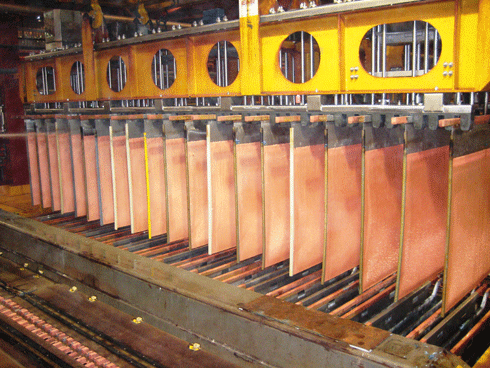
|
Published: 22 October 2012
Simple ‘switch’ in metals processing that could power a city
Just as flicking a switch can save money on a domestic electricity bill, huge savings, both cost and environmental, can be made by improving large scale electrical connections used in metal production.

|
|
The high amperage testing facility tests electrical connections used in copper production as well as many other metal production industries. Credit: CSIRO
|
CSIRO’s Minerals Down Under Flagship (MDU) is exploring ways to assist primary metals producing industries to become less reliant on electricity to reduce its greenhouse gas emissions and save on production costs.
The new high amperage testing facility, in conjunction with the MDU’s advanced modelling capability, allows researchers to assess where opportunities for improvements can be made within electrically energy intensive primary metals production industries, such as the aluminium production process.
Researchers have commenced investigating high-amperage electrical connection systems that form part of the smelting process to convert alumina into primary aluminium metal.
Project Leader, David Molenaar says that significant energy savings can be made in metal winning, ‘simply by improving the efficiency of electrical connections that deliver power to the process’.
Power losses of about 10 per cent occur through electrical connections. Improving the energy efficiency can deliver cost savings of more than $1 million per year per smelter.
‘We think we can save enough electricity, about 20 millivolts, across the seven Australasian aluminium smelters. [That’s enough] to power all the houses in a city the size of Mildura in Victoria, or Gladstone in Queensland,’ says Molenaar.
The Australian aluminium smelting industry presently consumes almost 15 per cent of the nation’s electricity and contributes to 7 per cent of Australia’s greenhouse gas emissions.
To date, the MDU team has identified more than $20 million per year in cost savings and a reduction in carbon dioxide emissions of greater than 200 000 tonnes per year from clients existing operations.
Molenaar believes that these improvements will assist the industry in producing the same output with less electrical input and therefore helping the industry to remain competitive and reduce their carbon footprint.
Source: CSIRO’s resourceful



